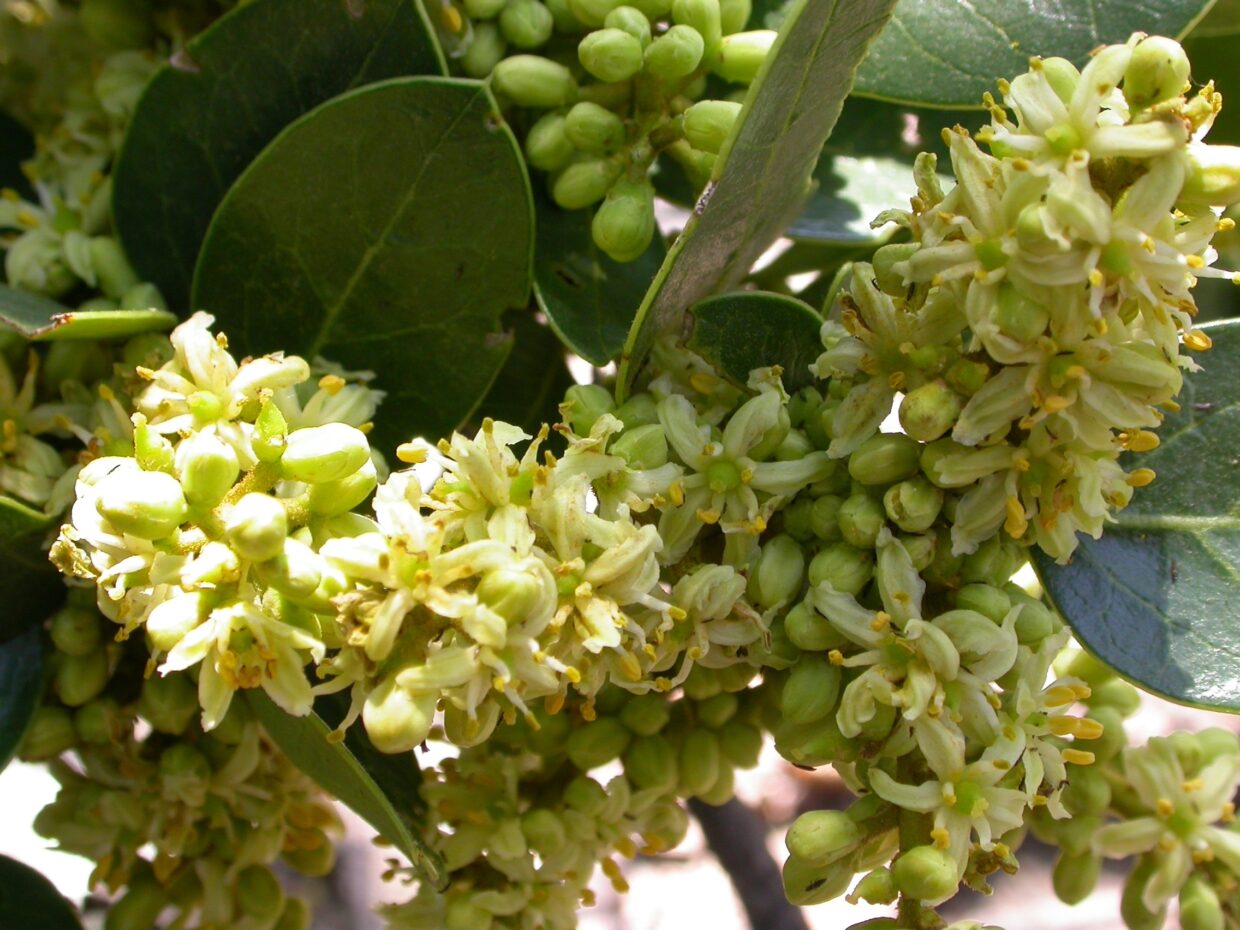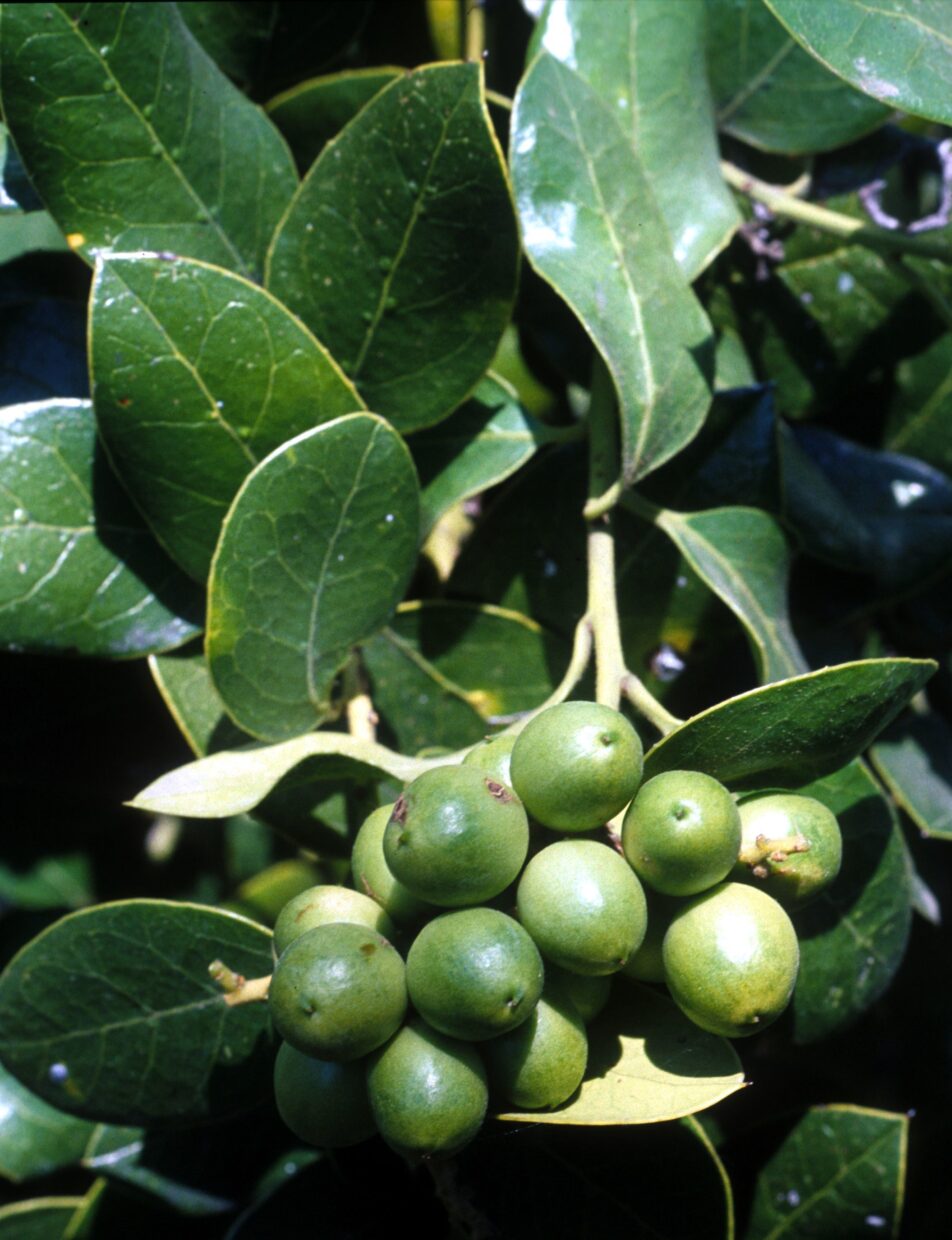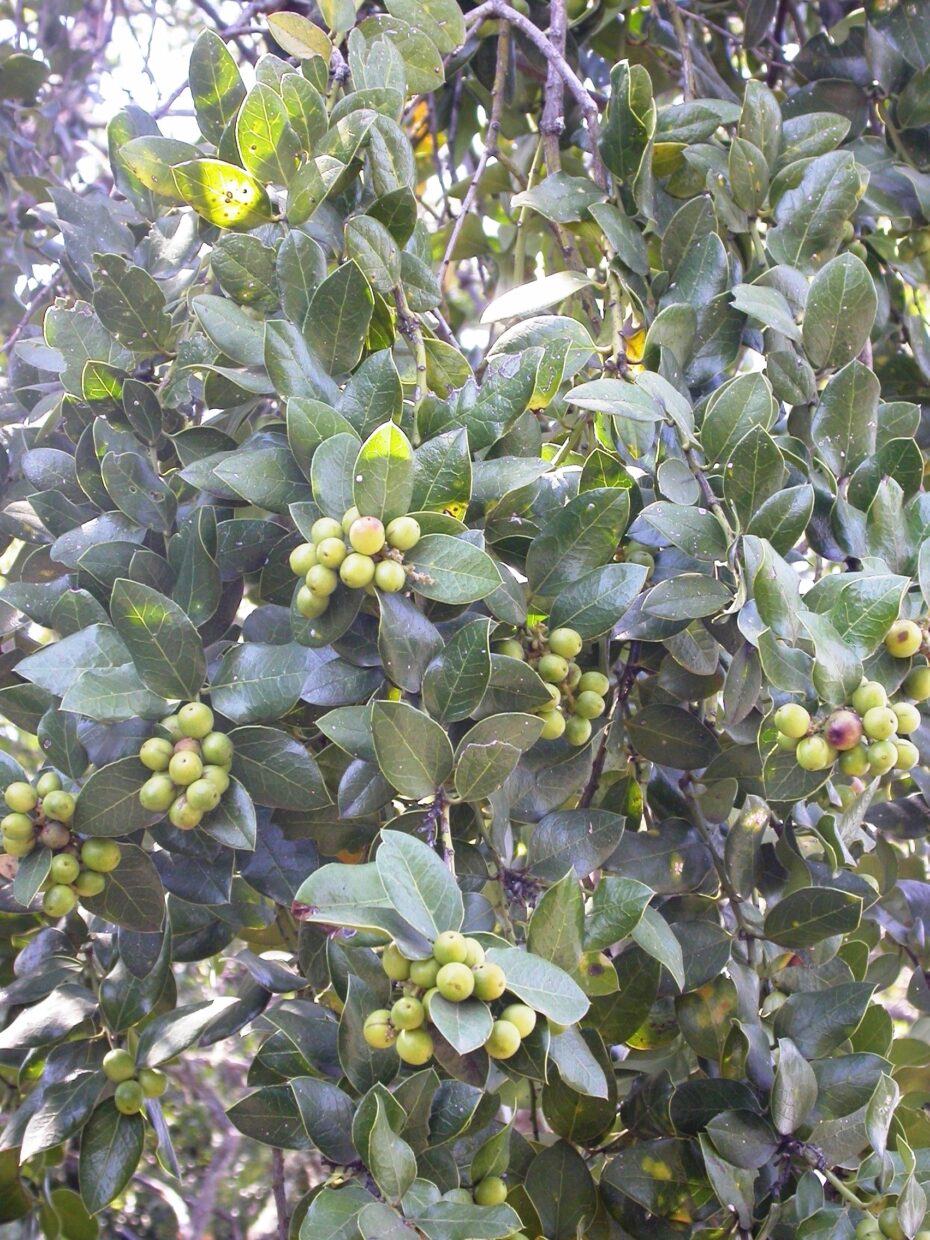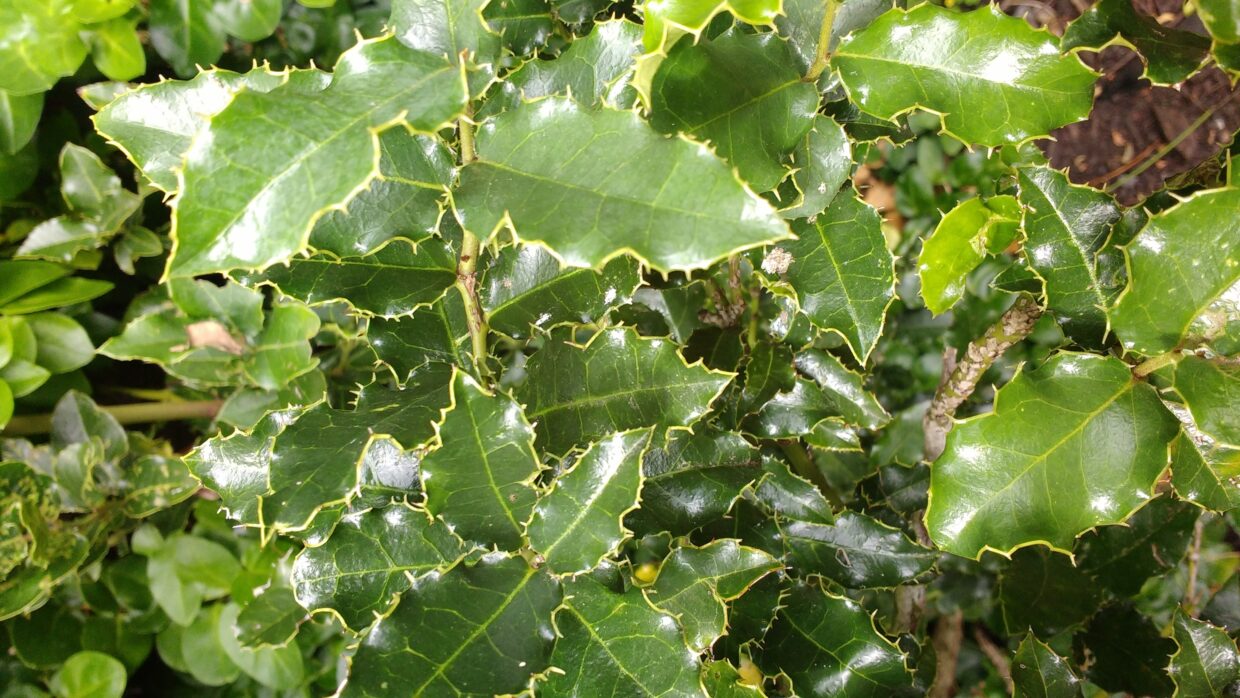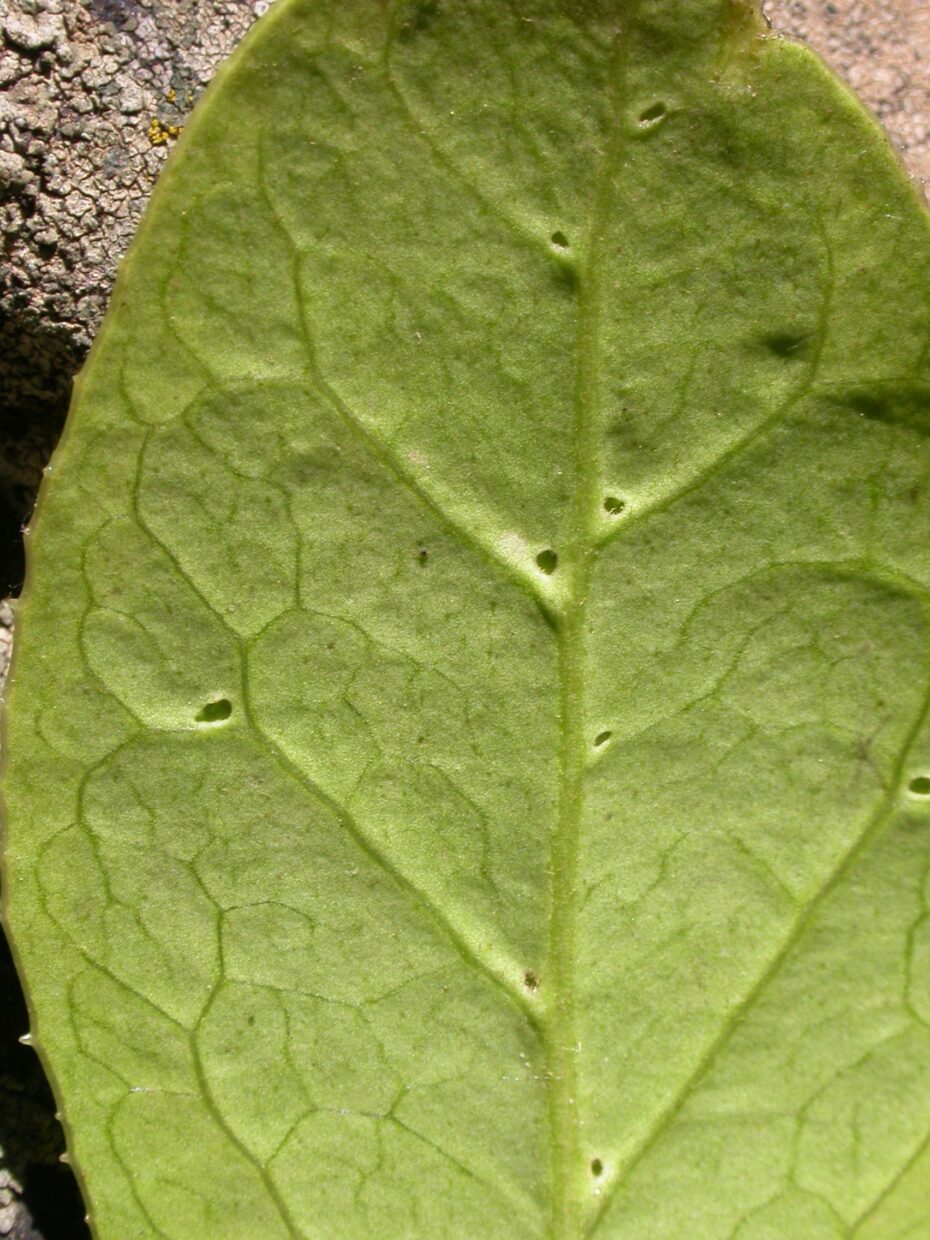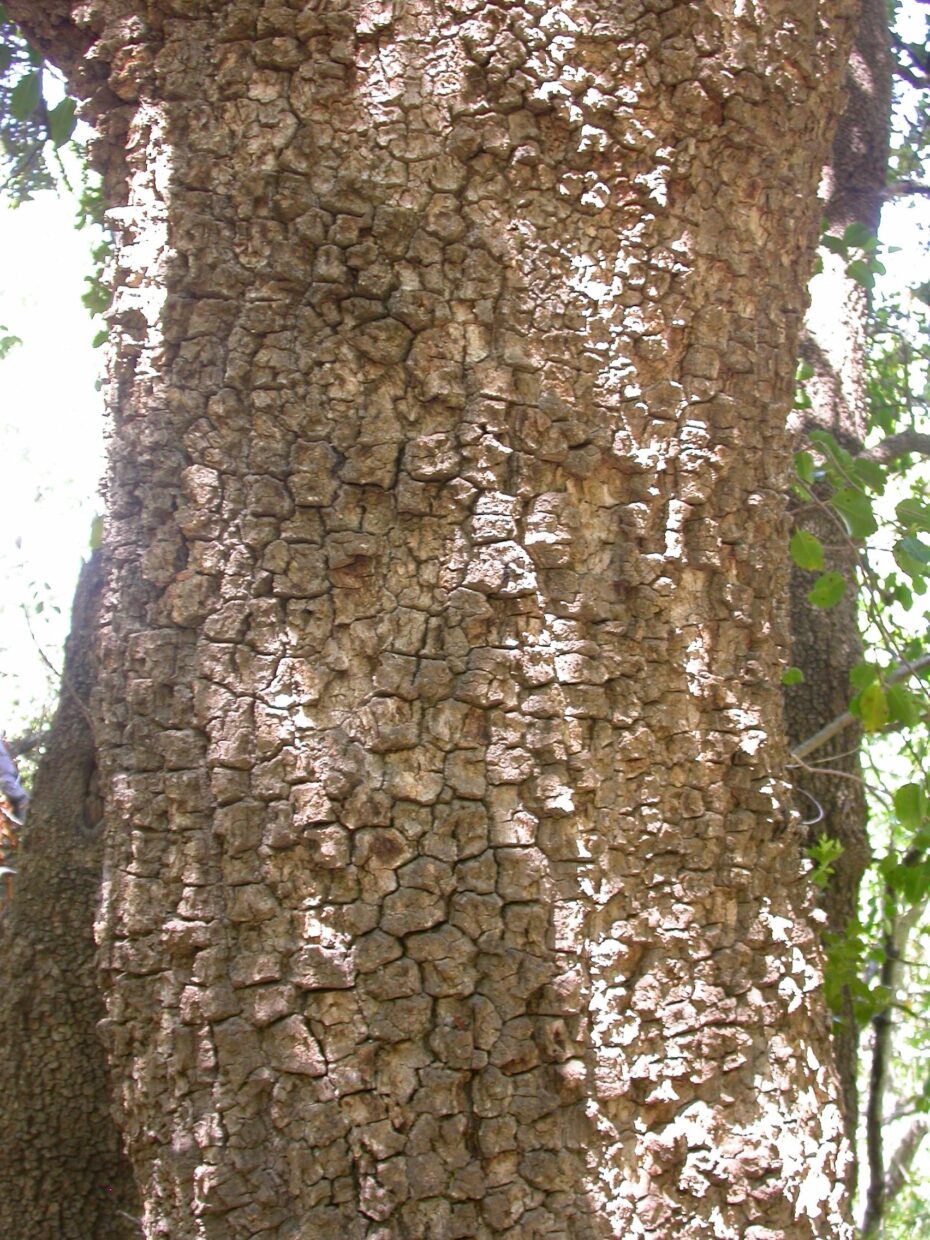Place of Publication
Edinburgh New Philos. J. 13: 243 (1832b)
Synonyms
- Patagua chilensis Poepp. ex Neger
- Villaresia chilensis Stuntz
- Villaresia gongonha (Mart.) Miers var. pungens
- Villaresia mucronata Ruiz & Pav.
- Villaresia mucronata Ruiz & Pav. var. laeta
- Villaresia pungens Miers
Common names
- guillipatagua (Hechenleitner et al. (2005))
- huillipatgua (Hechenleitner et al. (2005))
- naranjillo (Hechenleitner et al. (2005))
- patagua (Hechenleitner et al. (2005))
- pataguilla (Hechenleitner et al. (2005))
References
-
Don D. (1832b)
Don, D. 1832b. On the characters and affinities of certain genera chiefly belonging to the flora peruviana. Edinburgh New Philosophical Journal 13: 233-244
-
Hechenleitner et al. (2005)
Hechenleitner, P. , Gardner, M.F. , Thomas, P.I. , Echeverría, C , Escobar, B. , Brownless, P. and Martínez A., C. 2005. Plantas amenazadas del centro-sur de Chile: distribución, conservación y propagación, 1a edición. Valdivia: Trama Impresores S.A
-
Hechenleitner & Gardner (2006)
Hechenleitner, P and Gardner, M. F. 2006. Citronella mucronata (Ruiz & Pav.) D. Don. In: Donoso, C (Ed.), Las especies arbóreas de los bosques templados de Chile y Argentina : autoecología, pp. 197-200. Marisa Cuneo Ed. Valdivia, Chile. Concepción, Chile.
Iconography
- Hechenleitner et al. (2005): p.61
Regions
Coquimbo, Valparaíso, Metropolitana, Del General Libertador Bernardo O'Higgins, Maule, Biobío, Araucanía, Los Ríos and Ñuble
Habitat
Mediterranean, Temperate Forests, Valdivian rainforest and Relict coastal forest
Distribution and habitat
Extensive north-south, discontinuous, distribution from Region IV (province Limarí, 30°40’S) to Region X (province Osorno, 40°30’S). It occurs in the Andes and in the Coastal Cordillera and has an altitudinal range of between 15 to1400 m. It usually grows in the sclerophyllous forets as isolated individuals or in small stands on shaded hillsides and in humid valleys. It is particularly frequent in the Roble-Hualo forest type, where it can grow with Nothofagus dombeyi and N. nervosa depending on the latitude. In Reserva Nacional Los Bellotos del Melado, in the Andes, it is associated with Beilschmiedia berteroana, Cryptocarya alba, Nothofagus glauca and Quillaja saponaria. In more northern coastal habitats it is often associated with Aextoxicon punctatum, Beilschmiedia miersii, Cryptocarya alba and Schinus latifolius. In the south of its range it is a very scarce.
Distribution
-
Citronella mucronata (Ruiz & Pav.) D. Don
-
-
Citronella mucronata (Ruiz & Pav.) D. Don
-
-
Citronella mucronata (Ruiz & Pav.) D. Don
-
-
Citronella mucronata (Ruiz & Pav.) D. Don
-
-
Citronella mucronata (Ruiz & Pav.) D. Don
-
-
Citronella mucronata (Ruiz & Pav.) D. Don
-
-
Citronella mucronata (Ruiz & Pav.) D. Don
-
-
Citronella mucronata (Ruiz & Pav.) D. Don
-
-
Citronella mucronata (Ruiz & Pav.) D. Don
-
-
Citronella mucronata (Ruiz & Pav.) D. Don
-
-
Citronella mucronata (Ruiz & Pav.) D. Don
-
-
Citronella mucronata (Ruiz & Pav.) D. Don
-
-
Citronella mucronata (Ruiz & Pav.) D. Don
-
-
Citronella mucronata (Ruiz & Pav.) D. Don
-
-
Citronella mucronata (Ruiz & Pav.) D. Don
-
-
Citronella mucronata (Ruiz & Pav.) D. Don
-
-
Citronella mucronata (Ruiz & Pav.) D. Don
-
-
Citronella mucronata (Ruiz & Pav.) D. Don
-
-
Citronella mucronata (Ruiz & Pav.) D. Don
-
-
Citronella mucronata (Ruiz & Pav.) D. Don
-
-
Citronella mucronata (Ruiz & Pav.) D. Don
-
-
Citronella mucronata (Ruiz & Pav.) D. Don
-
-
Citronella mucronata (Ruiz & Pav.) D. Don
-
-
Citronella mucronata (Ruiz & Pav.) D. Don
-
-
Citronella mucronata (Ruiz & Pav.) D. Don
-
-
Citronella mucronata (Ruiz & Pav.) D. Don
-
-
Citronella mucronata (Ruiz & Pav.) D. Don
-
-
Citronella mucronata (Ruiz & Pav.) D. Don
Here is #map_1 -
-
-
-
-
-
-
-
-
-
-
-
-
-
-
-
-
-
-
-
-
-
-
-
-
-
-
Descriptions
- Hechenleitner et al. (2005)
Habit
Evergreen tree to over 10 m tall. Flowering from September to November. Fruit matures from February to May
Notes
Seed of this species is banked by the national seed bank of Chile, INIA.




